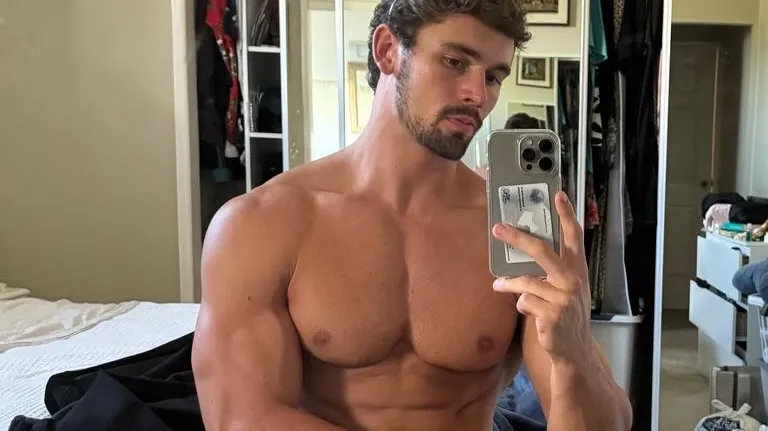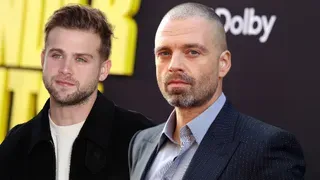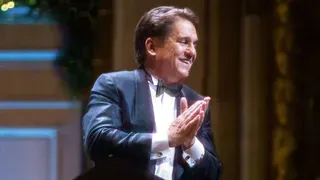January 10, 2023
Review: HBO's 'The Last of Us' is a Solid, Faithful Retelling of Hit Video Game
C.J. Prince READ TIME: 5 MIN.
It was only a matter of time before "The Last of Us," Naughty Dog's massively successful video game franchise for Sony's PlayStation consoles, would get adapted into a series. Released in 2013, "The Last of Us" combined the nihilistic, zombie-infested world of "The Walking Dead" with the plot of Alfonso Cuaron's "Children of Men" to chart the journey of a hardened smuggler and his "cargo" – a teenage girl who might be the key to saving humanity from extinction.
The game blended different types of gameplay (stealth, action, and survival horror) seamlessly, had an epic, fully-realized world of a post-apocalyptic America overrun by gangs and monsters, performances and writing considered well above the standards for video games at the time, and several bold storytelling choices that didn't give a damn about appeasing players' expectations. The game was, at the time, an apex of both a gaming and narrative experience; Naughty Dog somehow found a perfect formula where gameplay and story worked just as well on their own as they did together, and in turn raised the bar for what the format could accomplish.
That kind of success proved to be catnip for Hollywood, who came knocking with offers to adapt "The Last of Us," and now there's an HBO series from Craig Mazin (HBO's "Chernobyl") and Neil Druckmann, the game's writer and creator. And even if it's only halfway through January, "The Last of Us" is one of TV's biggest events of 2023, given the amount of pressure on it to succeed.
Video game adaptations have never really been a success in the past with critics, and video game fans can be even harder to please; this is such a concern that both Mazin and Druckmann have already stated they hope the show breaks the "curse" of disappointing adaptations. However, the close involvement with Druckmann and others from the source material, and Mazin's proven success as a prestige TV showrunner, show a level of reverence for the game that's rarely seen with these kinds of adaptations. And the good news is that HBO's "The Last of Us" clears the very low bar of being the best video game adaptation to date – or, to put it more accurately, the most accomplished.
The series starts with a flashback to a scientist laying out a potentially grim future: Earth's changing climate may provide opportunities for certain types of parasites or infectious fungi to evolve in ways that can infect humans. Cut to 2003, where carpenter Joel (Pedro Pascal), his daughter Sarah (Nico Parker), and his brother Tommy (Gabriel Luna) live in Austin, Texas, and watch civilization collapse as a mutated version of the cordyceps fungus makes its way through the population. The fungus gets into people's brains, turns them into violent zombie-like creatures, and infects anyone they come into contact with.
After that prologue, the series jumps ahead 20 years, where a middle-aged Joel now lives in Boston with his partner Tess (Anna Torv). The city, considered a quarantine zone, is run by an authoritarian government agency and is at constant war with rebels that call themselves the Fireflies. Joel and Tess are smugglers trying to find a car to break out of the city, but their attempts to trade another smuggler for a car battery go wrong, landing them at the feet of the Fireflies' leader, Marlene (Merle Dandridge, reprising her role from the game). Marlene offers them a way out of Boston in the form of Ellie (Bella Ramsey), a 14-year-old girl who's somehow immune to the infection. Marlene will give Joel and Tess whatever they want if they can safely escort Ellie to a group of Fireflies that will take her away to try and find a cure. They accept, and after a series of life-threatening situations, Joel and Ellie find themselves traveling across the country to get to their destination.
As far as narrative goes, Naughty Dog's "The Last of Us" had such a well-developed story and episodic structure that it fits the television format like a glove. Fans of the game should be happy that the show faithfully follows almost every major story beat from the original, and the structure of Joel and Ellie hopping from one location to the next remains in place. The changes the show does make are largely practical ones, with the biggest being the infected having a much smaller presence. This is a sensible choice, given the show has to be more grounded than the game, and the characters are too weak and under-resourced to take on a horde of creatures. It also gives more weight to the times when the infected do come around, as they wipe out almost anyone that stands in their way.
Not all of the changes work, although the issues around them tend to be minor. One of the biggest divergences from the game is how the show handles Bill (Nick Offerman), a survivalist Joel and Ellie encounter early on in the game. The series fleshes out Bill's character significantly, and while it leads to some effective moments, it comes with the cost of putting Joel and Ellie's character development on pause. It's understandable that Mazin and Druckmann would want to expand on characters in ways the game couldn't, but de-centralizing the story betrays the core dynamic between Joel and Ellie that makes everything work. Luckily, those sorts of detours are rare, and by the season's halfway point "The Last of Us" finds a good rhythm.
Casting-wise, the show is near-perfect, with Pascal and Ramsey doing such a great job of mimicking their game counterparts it feels downright eerie. Pascal's brief stint on "Game of Thrones" already proved he can make a strong impression in a short amount of time, and here he's the show's weathered, beaten-down rock, a strong central presence that keeps the show's momentum going. Ramsey starts out a little too precocious, with the writing putting too much emphasis on annoying adults with her rebellious behavior, but as her character opens up in later episodes she rises to the challenge. Highlights from the rest of the cast include Torv as Tess, Offerman as Bill, and cameos from the likes of "The White Lotus" star Murray Bartlett and others, who usually show up as new characters not from the game.
Having played "The Last of Us," it's hard to come away too dissatisfied from this adaptation. It can't surpass the experience of the original, but Druckmann and Mazin aren't going for that anyway. This is about bringing the story over to a wider audience in a way that doesn't go against the fans of the original, and on those terms it's largely successful. Even with nine episodes, not everything can be replicated perfectly, and at a few points some of the plot developments can feel rushed in comparison to the immersiveness of playing at your own pace. But for those who haven't played, or are unfamiliar with the story, HBO's "The Last of Us" should make for a new, entertaining series bound to get people excited for Sunday nights.
"The Last of Us" premieres on HBO on January 15.







